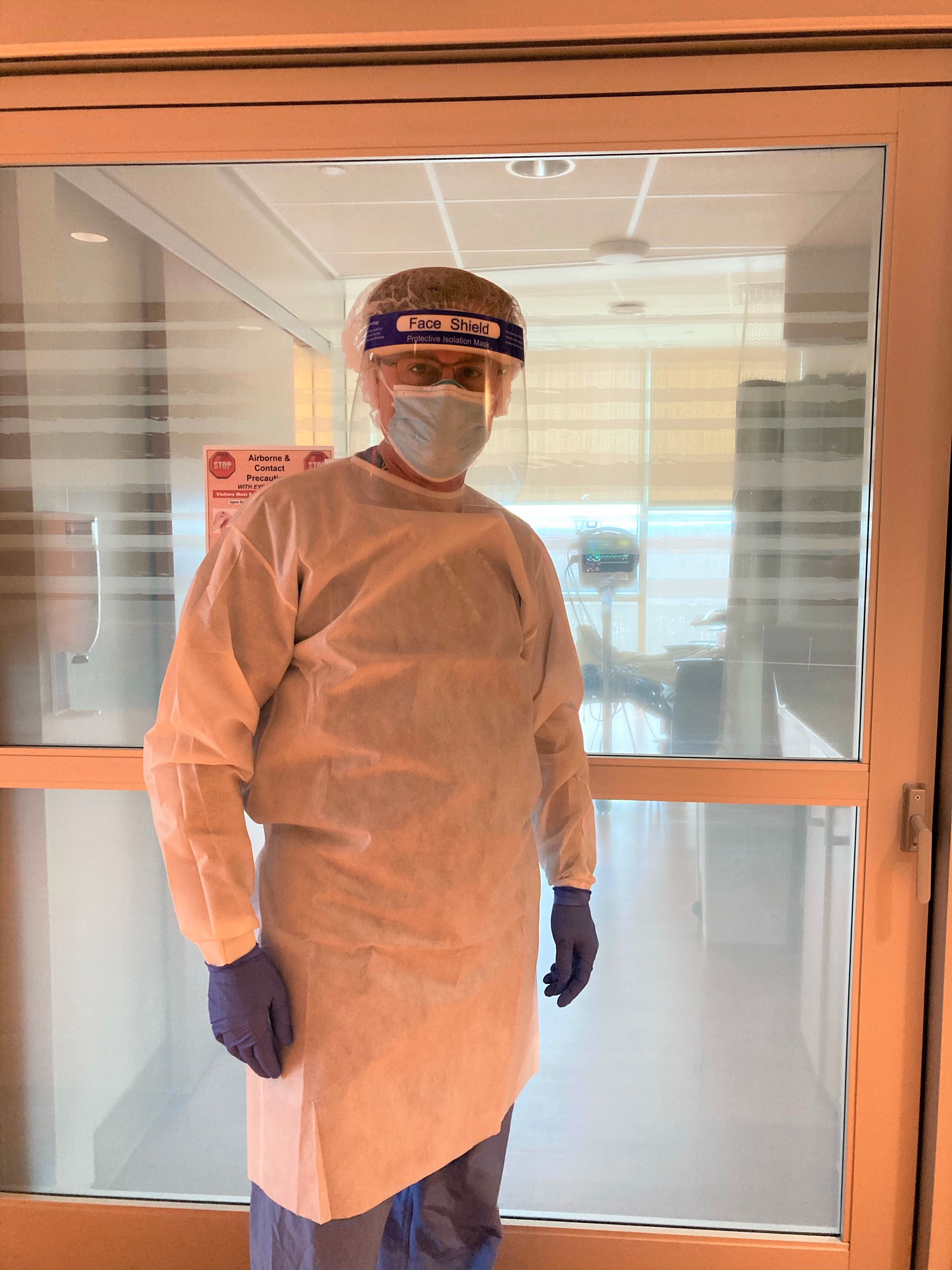The week of Dec. 7 marked a major milestone for UConn John Dempsey Hospital with its first COVID-19 outpatients successfully receiving monoclonal antibody therapies, recently authorized by the FDA for emergency use.
UConn Health is now offering qualifying non-hospitalized COVID-19 outpatients either bamlanivimab or a combination of casirivimab and imdevimab. These monoclonal therapies are laboratory-designed proteins which work by mimicking the immune system to help fight off the COVID-19 virus by specifically blocking its attachment and entry into cells.
“While investigational, clinical trials show these therapies may reduce COVID-19-related hospitalization, emergency room visits, and disease severity in high risk patients,” says Dr. Kevin Dieckhaus, chief of the Division of Infectious Diseases at UConn Health. “We are happy to report that we can now administer infusions of investigational monoclonal antibody therapies to qualifying COVID-19 positive outpatients with mild to moderate disease who are high risk for severe disease progression or hospitalization.”
Availability of the monoclonal therapies is based on current drug supply, which may be severely limited at times. Currently, only patients at increased mortality risk are being considered for monoclonal therapy infusion at UConn Health.
At this time, due to limited supplies, only UConn Health patients who meets qualifying criteria can be referred by their clinician to UConn Health’s Infectious Diseases team within Epic, the electronic health record system (for “Ambulatory Referral for COVID Therapeutic Infusion”), to be considered for the outpatient COVID-19 therapeutic infusion.
The outpatient monoclonal antibody infusions are taking place at the newly established Therapeutic Infusion Center on the hospital’s fourth floor. Each qualifying outpatient receives the one hour infusion intravenously and is observed for a minimum of one hour post-infusion.
To potentially be considered for monoclonal antibody therapy, patients must demonstrate a documented PCR test with clinical symptom onset within 7 days of anticipated infusion. Patients must have one or more of several qualifying conditions. Qualifying conditions include either age ≥ 65 years or co-morbidities such as advanced chronic kidney disease, heart failure, pulmonary disease, cystic fibrosis, solid organ or stem cell transplant, active chemotherapy for acute leukemia, lymphoma, or myeloma, Parkinson’s disease, use of immunosuppressive therapy, diabetes requiring medication, or a body mass index (BMI) ≥ 35.
Please note that patients who are hospitalized because of COVID-19 or require oxygen therapy because of COVID-19 are not eligible for an infusion. Some patients may be ultimately be excluded following further onsite clinical assessment.
“We are honored to be able to offer the latest promising care solutions to the highest risk COVID-19 positive patients with the aim to improve their outcomes and survival, and hopefully halt this virus from progressing,” says Dr. Casey Godshall, assistant professor of Medicine and an Infectious Disease physician at UConn Health. “As supplies of any other promising investigational monoclonal antibody therapies become available, we will be incorporating them into the Therapeutic Infusion Center’s outpatient care offerings.”
For more information about the new monoclonal antibodies, the FDA has provided these fact sheets about bamlanivimab for health care providers and patients and caregivers, and for casirivimab and imdevimab for providers and patients and caregivers.



